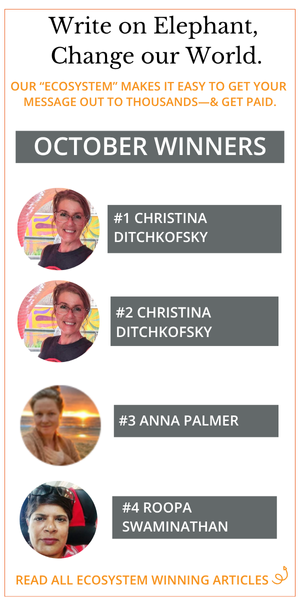View this post on Instagram
Katy Perry once asked if we felt like a plastic bag drifting through the wind. I don’t—but I would like to experience that windblown freedom.
Instead, I feel like one of those contactless payment machines hoisted into your face by an extending metal pole at the drive-thru, except instead of happy diners, it’s two teens tapping me up, shaking me down for spare cash, and discarding me when done.
It’s the lunch money, gym fees, sports kits, bus fares, driving lessons, and clothes for their ever-expanding limbs. And when I am not shaken down, I am summoned, directed, or coerced into pick-ups, drop-offs, pit stops, and side quests.
And when they are not demanding the last living lifeblood within me, it’s their teachers, doctors, dentists, sports coaches, clubs, hobbies, exam timetables, and bullsh*t dramas that take up any remaining energy.
I sit in front of my calendar each night and mark off another day completed, like an inmate on death row. X marks the found-the-will-to-live spot—another day closer to the boys reaching adulthood. In this adulthood, I perceive my life will miraculously reappear, and my choices will become my own again. However, one too many almost empty nesters tell me that this is rarely the case, so let’s not go there.
Of course, I also need to show up for my full-time job, which allows me to keep the cogs turning, the boys fed and housed, and the parent who is self-electively MIA in blissful parenting ignorance.
Oh, and then there’s the dog.
The Village has F*cked Off
The impact of child abandonment by a parent is well documented and often written about. Yet, the absence of a parent does not just impact the child—it can profoundly affect the remaining parent, a topic which is, frankly, less talked about. The absence of coverage on this topic is probably because society makes us (lone parents, often women) feel even crappier by moaning about how bad we have it when we should be just focused on the kids, right? How dare we? Case in point.
They (the wise ones) say it takes a village to raise a child, but what happens when that village…has f*cked off?
Psychological research confirms that single parents often struggle with stress, isolation, and grief. Taking on both caregiving and disciplinary roles alone can lead to parental burnout, a state of chronic physical and emotional exhaustion. The absence of an active and supportive co-parent frequently leads to emotional trauma, financial hardship, burnout, and mental health challenges.
An excerpt in the book A Litte Life by Hanya Yanagihara about the psychological impact of having a child and that sense of instant out-of-body otherness that keeps you in fitful sleep for 18 years (plus) resonated deeply with me. He says:
“You have never known fear until you have a child, and maybe that is what tricks us into thinking that it is more magnificent because the fear itself is more magnificent. Every day, your first thought is not ‘I love him’ but ‘How is he?’ The world, overnight, rearranges itself into an obstacle course of terrors. I would hold him in my arms and wait to cross the street and would think how absurd it was that my child, that any child, could expect to survive this life. It seemed as improbable as the survival of one of those late-spring butterflies—you know, those little white ones—I sometimes saw wobbling through the air, always just millimetres away from smacking itself against a windshield.”
Yanagihara paints a haunting yet profoundly moving portrait of parenting in this book that acknowledges its transformative power and heartbreaking limitations. This dichotomy is elevated to a new level in the case of lone parents who need to provide and protect by taking on both caregiving and disciplinary roles alone. It gives new meaning to fight or flight.
Overwhelmingly Overcompensating
As a lone parent, you constantly overcompensate when trying to fill your child’s cup because they only have you. I feel this acutely; that pressure means I can’t afford to miss a rugby game or a parent’s evening. It is the driving force behind every parenting decision I make (often to my detriment). Why? Because, thanks to our collective awakening regarding childhood trauma (gee, thanks, Gabor Mate), I am all too aware of the impact of parental abandonment on a child, and alongside the myriad of responsibilities I already have as a lone parent, I have also decided to (single-handedly) take on the full responsibility of preventing my kids from a lifetime of therapy bought about by the dreaded and much talked about childhood trauma.
The painful reality is that parental love cannot always undo past harm or save a child from the future impact of that. A tough realisation for all parents, and an excruciating one for this hyper-fixated, abandoned one.
A Partner will Solve all your Woes
Ark, what is that we hear? It’s the familiar choir of “you need to find a partner,” or “you need to start dating,” or “you need to get yourself out there” that I hear from many, I’m sure, well-meaning people. As if someone with the remaining emotional capacity of a goldfish could even consider a relationship. As if the depleting time, lack of throw-away cash, and absolute reliance upon my head would even allow space for anyone. That is and has always felt like a complication I don’t need. Isolation then becomes another casualty at the hands of the absent parent.
It is no surprise then that research in the Journal of Social and Personal Relationships (2021) found that single mothers, in particular, struggle with identity loss and self-worth issues. This is often compounded by the lack of social interaction, interpersonal relationships, and the ability to have any time for fun or friendships that a lone parent gets.
A recent weekend trip I took for my 40th birthday required military-like organisation. I am lucky to have some family support that allowed me to take that one-off break, but it was not an easy road and needed a ton of planning. On more than one occasion, I wondered if it would be easier to cancel, which is a pretty isolating realisation when it’s your first real break in a long time.
The UK Office for National Statistics (ONS) (2019) found that lone parents are among the most socially isolated groups, reporting significantly fewer close friendships and support networks. It is easy to see why—exhaustion sucks.
Resentment and Realisations
One of the most bitter pills I’ve had to swallow is dealing with the injustice of the situation, as a parent who stayed when the other parent left. I have often struggled with anger and resentment at the selfishness of someone else’s decision, not just on the children, but on me. Enter Betrayal Stress Disorder: if the absent parent leaves suddenly or without support, the remaining parent may experience betrayal trauma, a psychological response like PTSD.
Goldsmith et al. (2014), in Psychological Trauma: Theory, Research, Practice, and Policy, found that parents who experience abandonment by a co-parent are at increased risk of post-traumatic symptoms, including hypervigilance and emotional numbness (no sh*t Sherlock). I find myself in this numb state often—sometimes this anger and shame on behalf of the other person is my driving force, oftentimes it is my Achilles heel.
Light at the End of the Tunnel?
Don’t worry, lone parents. I will not end this article on an unrealistic saccharine high; our lot is tough, exhausting, unfair, and unbalanced.
However, we will find moments within these problematic years when light shines through the cracks. That likely comes after the physical graft lessens when our almost-adult kids decide that it’s you they want to spend Christmas with, take holidays with, and celebrate milestones alongside. It’s you they feel most comfortable leaving their babies with, you that gets to see the goals scored and the races won. And it is you who will get to (finally) sleep at night in the knowledge that you did your best. You showed up.
That is enough—it has to be.
~


 Share on bsky
Share on bsky




Read 8 comments and reply